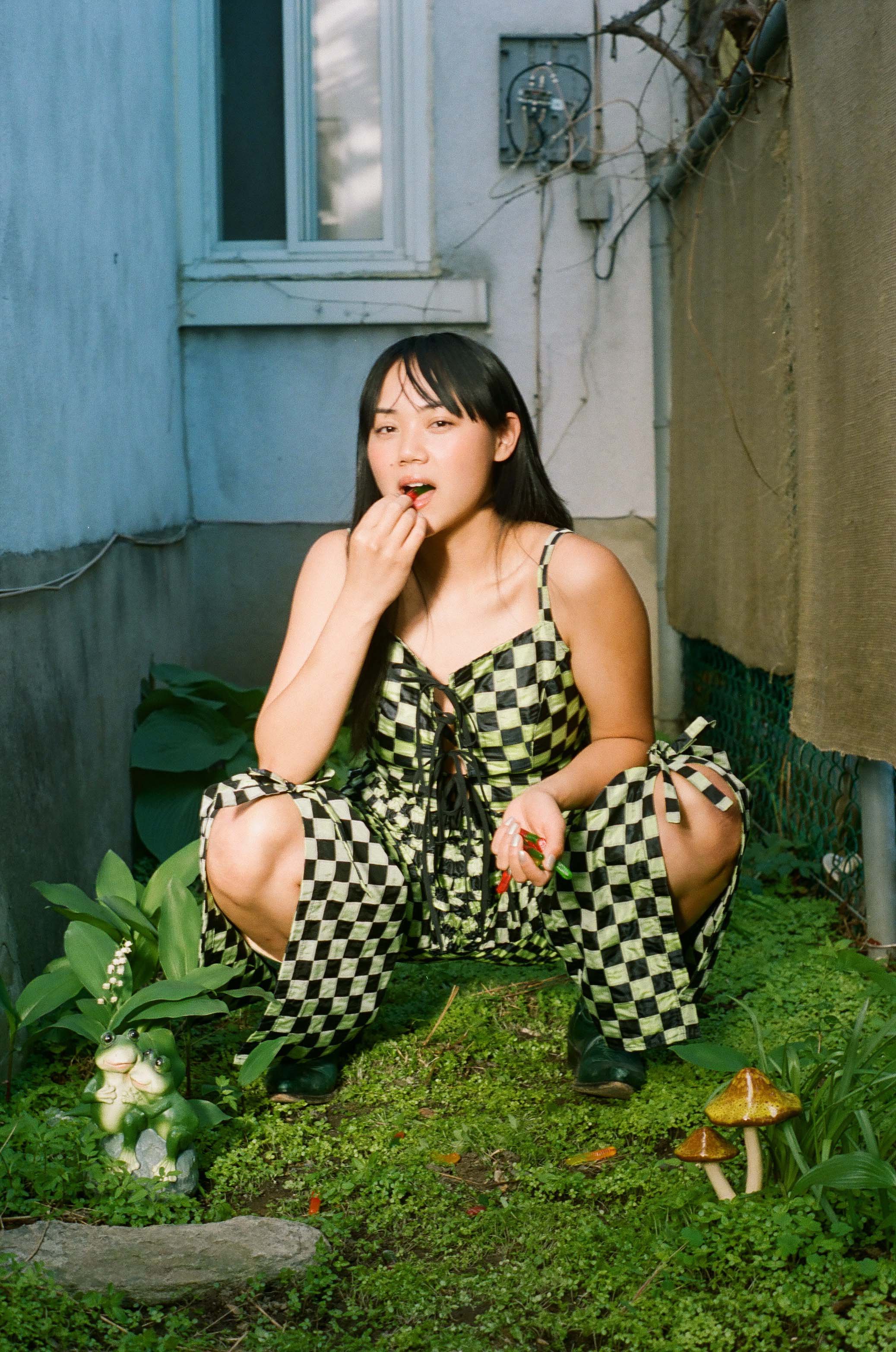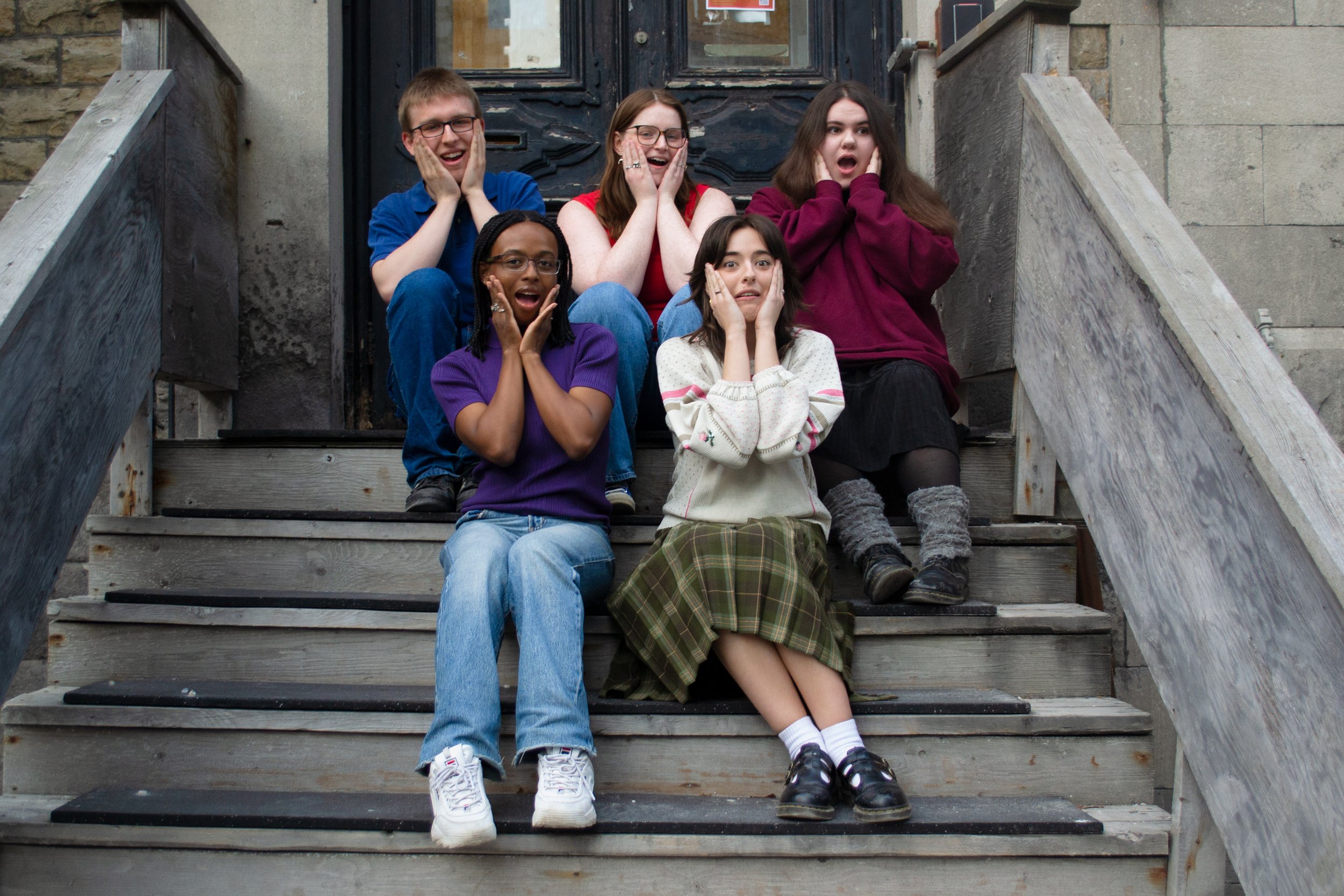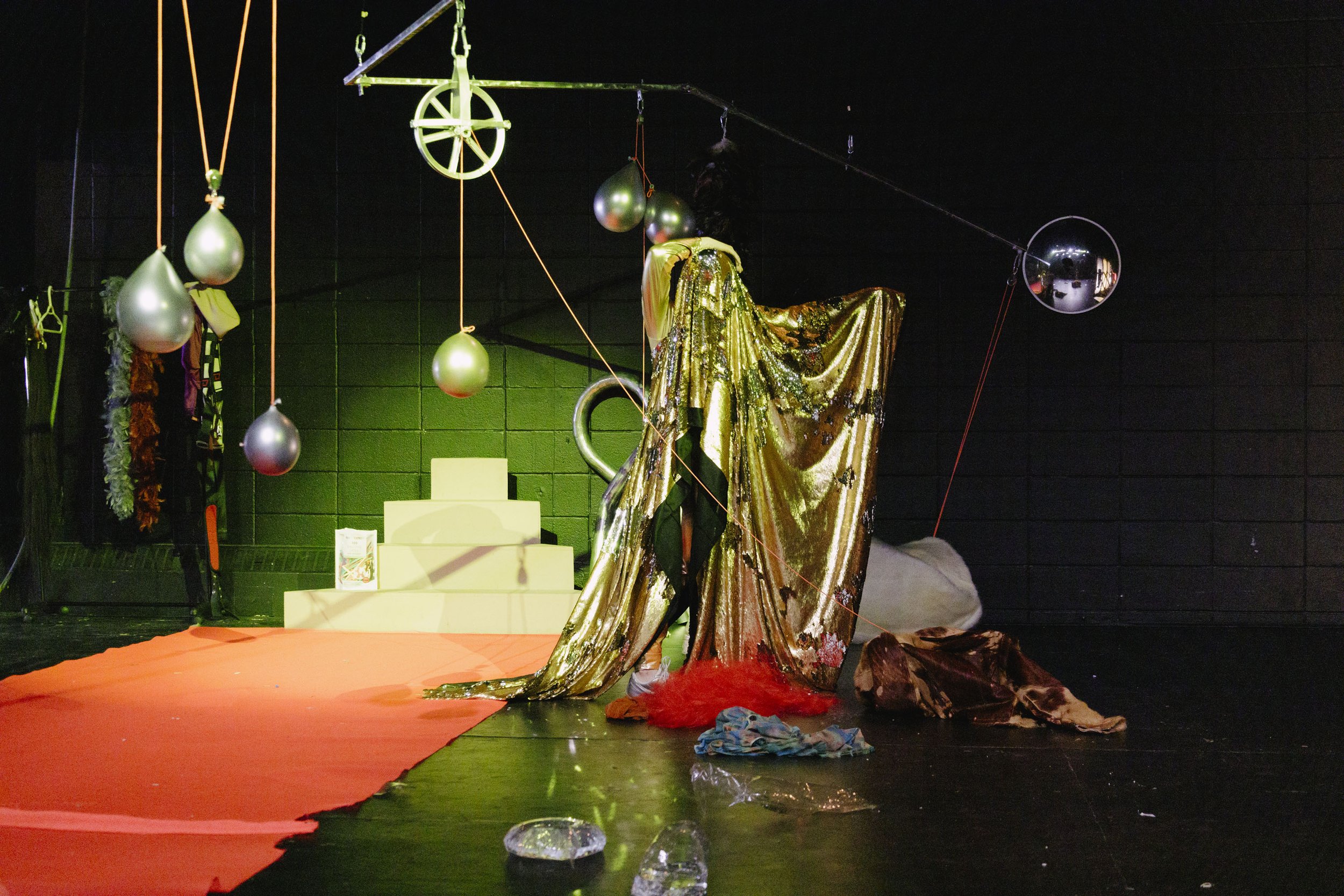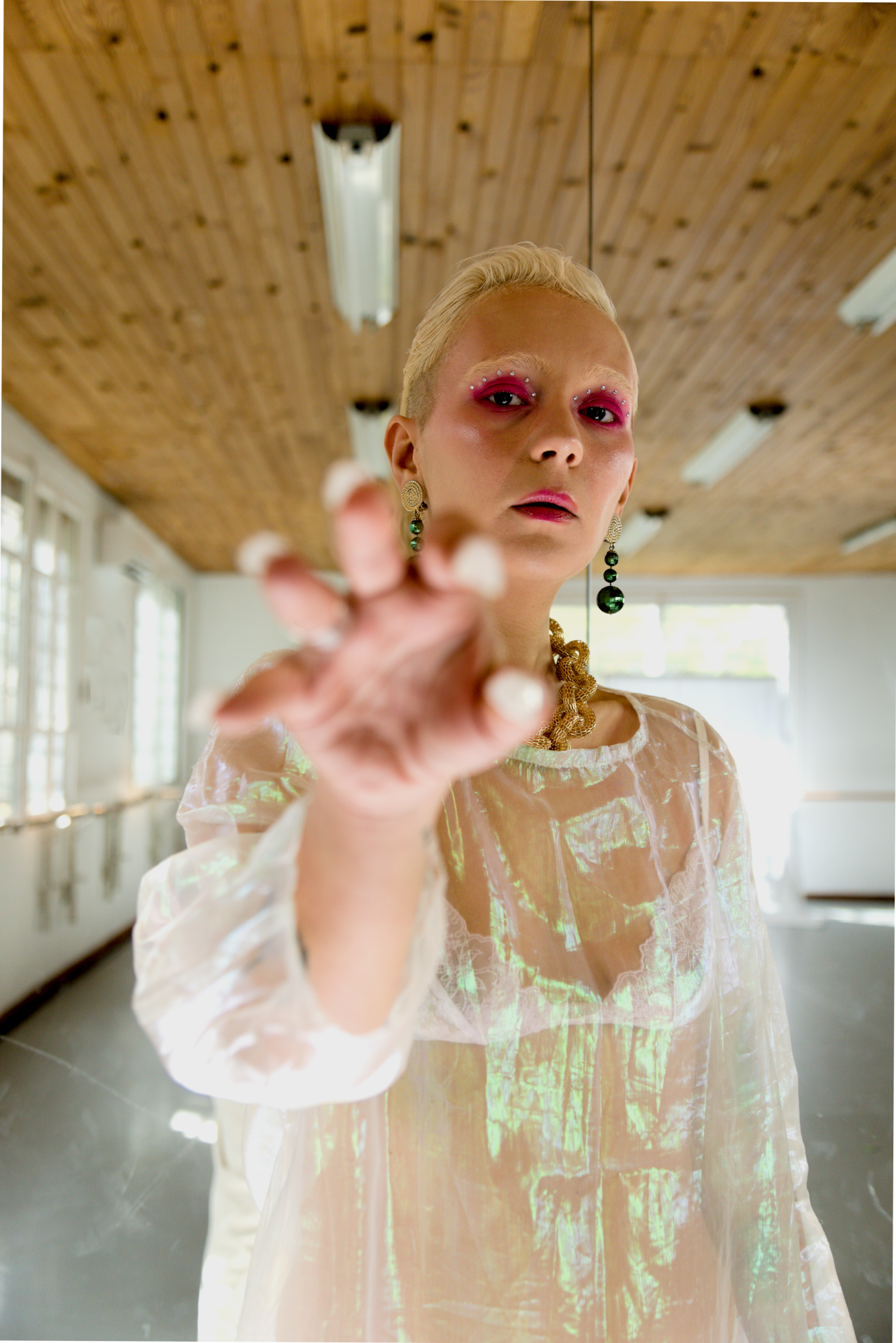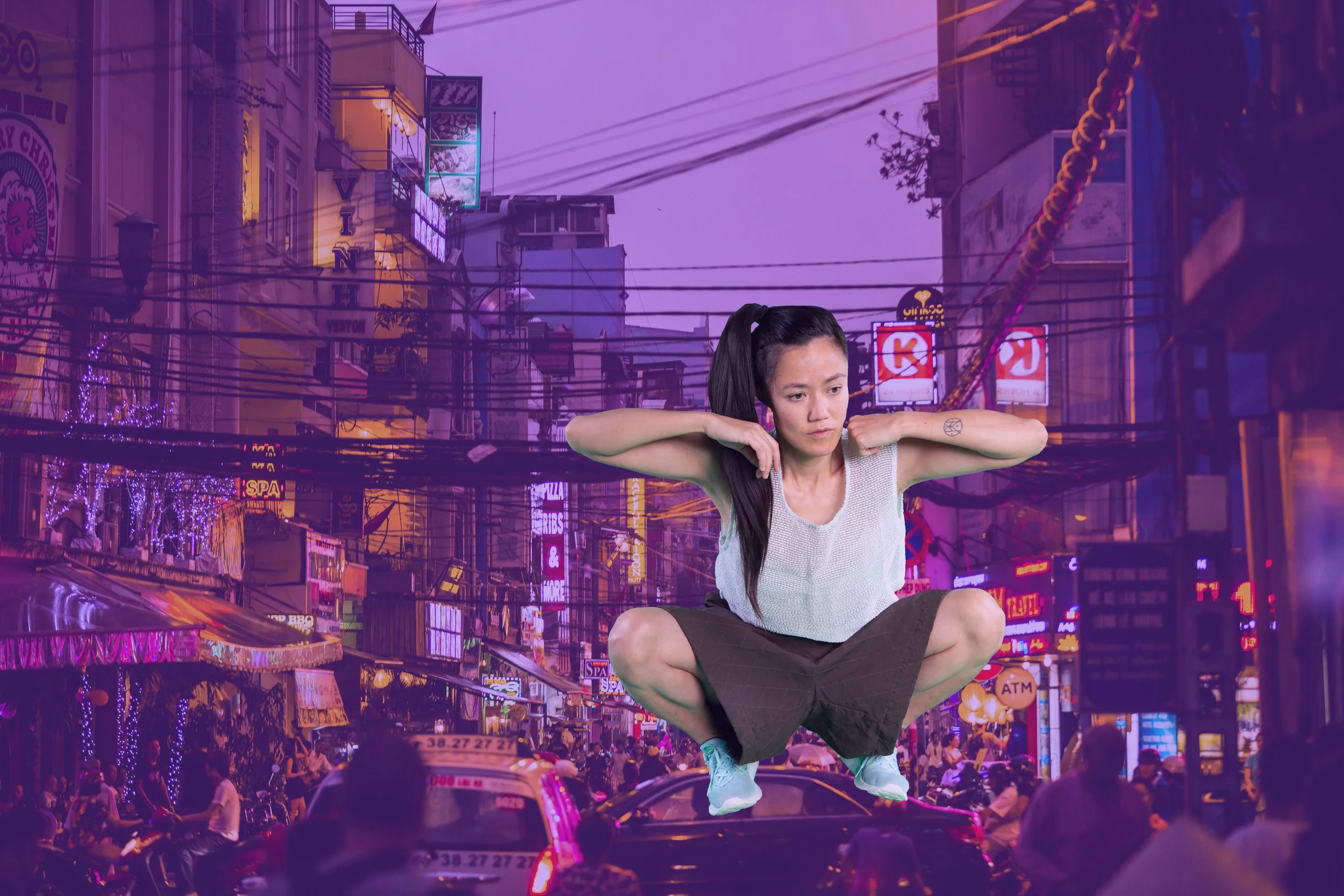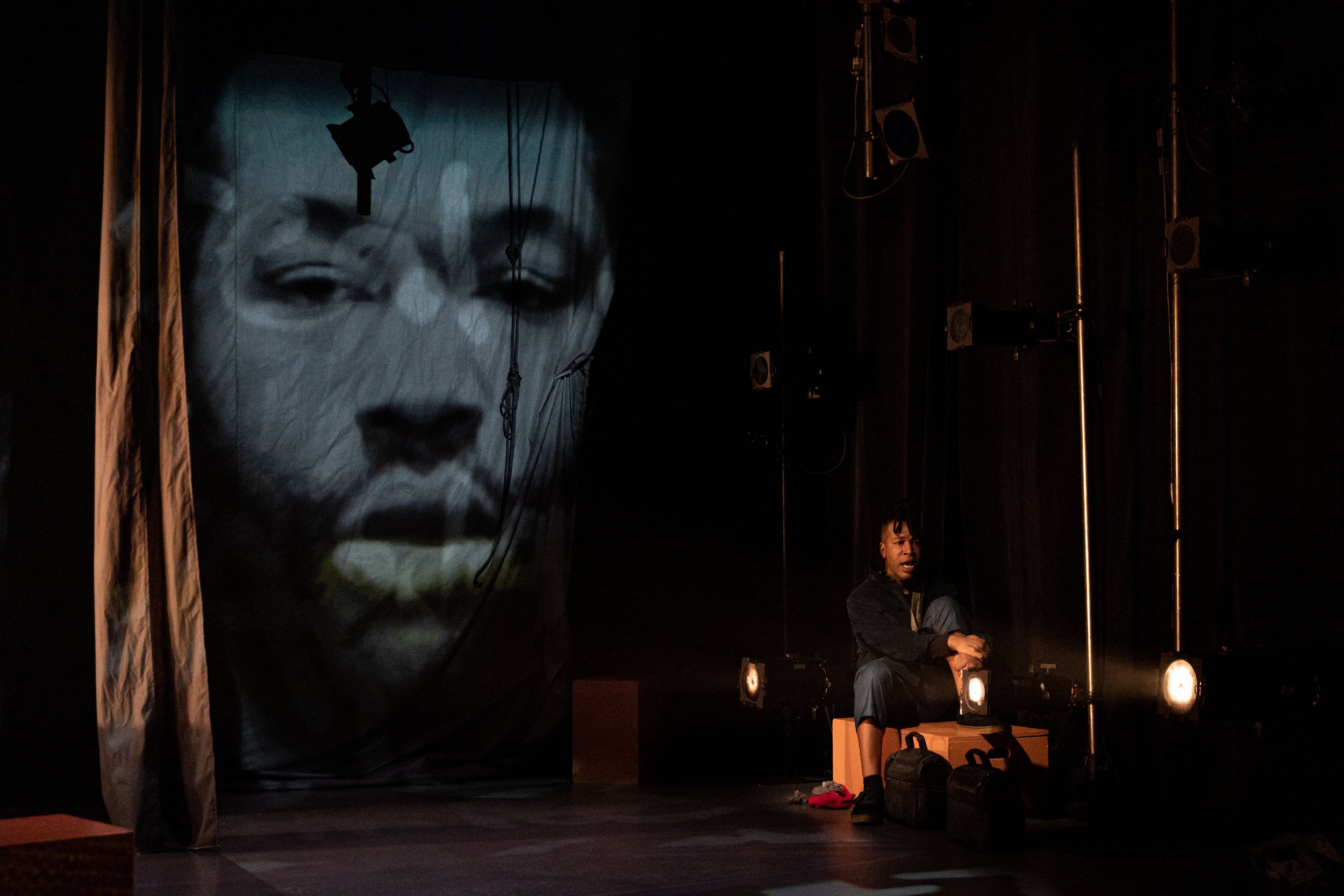Montreal Designer Kate Turner Talks Launching a Brand, Montreal's Fashion Scene & Sustainability
Kate Turner modelled by Emily Lê, photographed by Bea Scharf-Pierzchala
When I moved to Montreal, one of the first things I noticed was how uniquely well-dressed everyone is, nonchalantly making the city their runway. It seemed like no one cared to judge each other too harshly for wearing something other than big box stores and name brands, with many people wearing their friend's clothing lines or merch.
As the world opens up again and I've started going out more, I can't help but feel the same way I did all those years ago: Totally enamoured with the creativity I see in the way people dress. The combination of having so much time to ourselves, without having to dress for others, and now the celebratory ability to go out again has made for an explosion of personal expression and unique style.
What's even better is seeing friends' brands or creative projects being worn out in the world. It feels special to bond with a stranger because you're both wearing a garment that your friend made or to recognize the coolest pants you've ever seen on Instagram worn by someone casually doing groceries.
Kate Turner is one of those brands that makes you stop and say, "Wait, I think I've seen those before!" I've been a long-time admirer of her designs, and it's been exciting to see the brand grow and collaborate with mutual friends, fostering the fashion scene in Montreal. Her iconic green and black checkered pieces have been worn by the likes of Lil Miquela and just about every cool Montrealer out there.
I caught up with Kate over email about her latest collection, how she got started, sustainability, and a lot more.
Kate Turner modelled by Emily Lê, photographed by Bea Scharf-Pierzchala
Malaika Astorga for Also Cool Mag: Let's start with a bit about who you are and what you do.
Kate Turner: I'm Kate - I make clothes under the name Kate Turner.
Also Cool: How did you first get into fashion? Has this creative practice always been in your life, or is it something that came later?
KT: I liked to sew in high school, and I thought I was a cool dresser back then. My family is full of creative people, specifically my mom and aunts; they heavily influence me.
After high school, I pursued other things but came back to sewing in my mid 20's. I started making really basic baggy dresses, and shirts and people loved them. Then a store sent me a message saying they would like to sell my clothes and I was so excited I didn't sleep. I was up all night thinking about how it was even possible to make clothes for a living. I wanted to study some more before starting my own brand, so I did a textile design studio program in a mountain town in BC. I consider myself self-taught as far as fashion design with a background in textile art.
Kate Turner modelled by Emily Lê, photographed by Bea Scharf-Pierzchala
Also Cool: How has your brand evolved over time, and what have you learned about yourself and your creative practice in the process?
KT: My brand evolves with my personal growth, the skills I learn and the connections I make. It is all on display.
I had a studio in Chabanel for a year and made a lot of connections with small factories there. I found somewhere that makes ribbons out of whatever fabric you choose, so everything I made (like the Maya suits) had ribbons all over them. I am now into elastic shirring and making everything stretchy and texturized. I bought a specialized twelve-needle machine that took me more than a month to get working, so expect a lot more shirred items in the future!
My creative process is all about making samples. That can be the scariest and hardest part, but it's really great to get ideas out of your head and see them in the physical world.
AC: How do you incorporate sustainable practices into your brand?
KT: That's a tricky question; I'm very wary of greenwashing and using "eco-friendly" as a way to sell clothes. I think the only way to be truly sustainable is to not make any new clothes at all. I think brands are misguided by marketing their things as such.
All that being said, the things I do as a small brand are source secondhand first, deadstock next and high-end virgin fabrics like silk and linen. I save all of my scraps and either reuse them or give them away to hobby sewers. I've recently introduced hemp into my studio this year; it takes the least amount of water to grow each fibre and lasts for hundreds of years.
Kate Turner modelled by Emily Lê, photographed by Bea Scharf-Pierzchala
AC: It seems like often people don't understand the amount of time, energy, and resources it takes to run a small brand. Could you break down this process for us and explain a bit about what goes on behind the scenes?
KT: I think a lot of people don't realize that behind the scenes, there are so many samples made before a garment is released. Even if it is a simple piece, there are usually a few prototypes/samples made and tested. And then you have to make one of each size and get those fitted. I always make my first prototypes out of secondhand bedsheets and then go from there. I make everything myself along with one seamstress, but I do get things like buttonholes, grommets, trims and spaghetti straps made in Chabanel.
Kate Turner modelled by Emily Lê, photographed by Bea Scharf-Pierzchala
AC: What has your experience with Montreal's fashion scene/community been like?
KT: I love making clothes in Montreal. I'm like a sponge; I get so inspired by what my friends and people on the street are wearing. It's quite impressive how creative people are at dressing in this city. It feels like you can wear the wildest outfits, and no one will even notice, which is not the case for most of Canada. It's a beautiful thing to witness Montrealers showing up and accepting expressions of our true selves through fashion, art and music.
AC: Last but not least, how can we best support you and your brand?
KT: The best way to support my brand is to show up to events that I have and engage in any way you can. You don't have to buy anything, but just showing up to support goes a long way. I'm grateful for the support I receive from my community.
Kate Turner modelled by Emily Lê, photographed by Bea Scharf-Pierzchala
Kate Turner
Malaika Astorga is the Co-Founder & Creative Director of Also Cool. She is a Mexican-Canadian visual artist, writer, and social media strategist currently based in Montreal.


